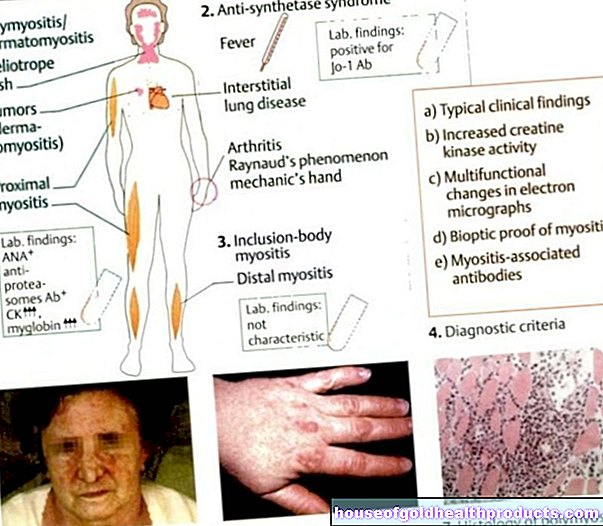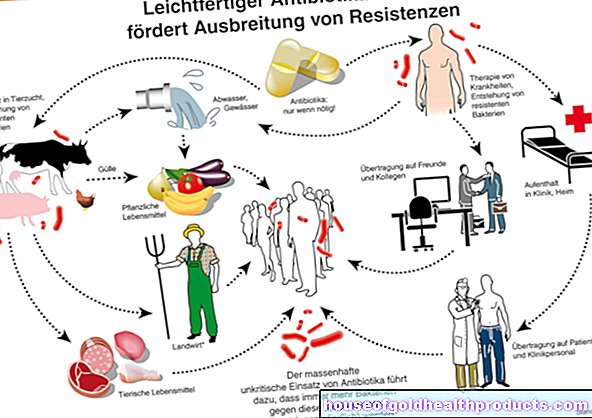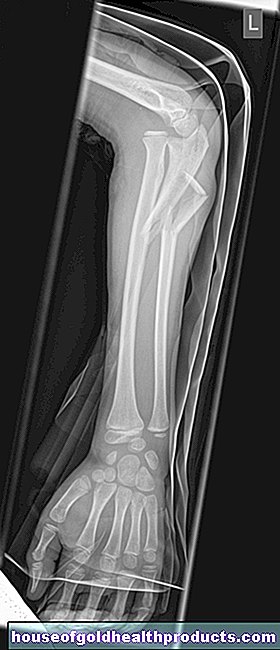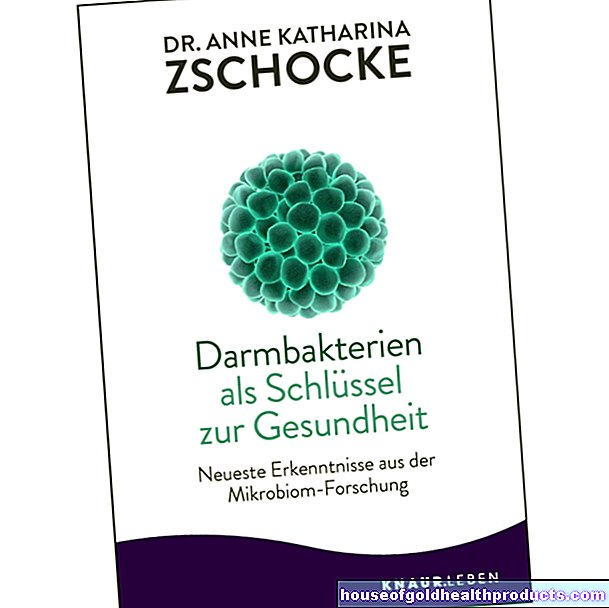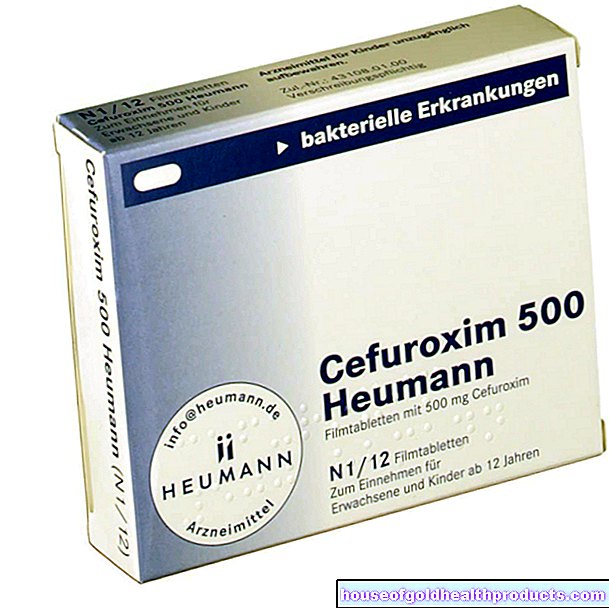Colon Cancer Screening: Mail Test is Effective
Lisa Vogel studied departmental journalism with a focus on medicine and biosciences at Ansbach University and deepened her journalistic knowledge in the master's degree in multimedia information and communication. This was followed by a traineeship in the editorial team. Since September 2020 she has been writing as a freelance journalist for
More posts by Lisa Vogel All content is checked by medical journalists.Colon cancer is one of the most common cancers worldwide. In Germany alone, almost 60,000 men and women develop cancer of the colon or rectum every year. Around 25,000 people die from this cancer.
In many cases, colon cancer can be prevented or at least detected early - namely through consistent preventive measures. The immunological stool test is an important part of the early detection service. It is used to examine stool samples for invisible traces of blood. Blood in the stool is often the first indication of colon cancer or its precursors.
"Too many hurdles"
"So far, however, only around ten percent of those eligible to take part have used the stool test each year in Germany," says Hermann Brenner from the German Cancer Research Center (DKFZ). This means that Germany lags behind other European countries.
One reason: In Germany, the implementation is cumbersome. "You have to get the test in the doctor's office, carry it out at home, return it to the practice and finally ask for the result at a new doctor's appointment," says Brenner. "There are too many hurdles."
Scientists from the German Cancer Research Center (DKFZ) have therefore worked together with the AOK Baden-Württemberg, the Association of General Practitioners and MEDI Baden to investigate whether more people use the test when it is easier to provide. To this end, 17,532 insured persons from Baden-Württemberg between the ages of 50 and 54 were randomly divided into three groups. The subjects had not had a colonoscopy in the previous years and had no cancer.
Test in the mailbox: three times as many participants
All three groups received a letter of invitation for colorectal cancer screening. The participants in the first intervention group also received several order options (Internet, e-mail, fax or post) for the test. The second intervention group received the test together with the invitation without a prior order. They could return the test free of charge by post. The participants in the third group only received the invitation and thus served as a control group.
In the group that only received the invitation, nothing changed in the known participation rate: it was still ten percent. In the group that had received the test with the letter, three times as many people took part in the year after the invitation, the participation rate was 29.7%. The effect was almost the same among study participants who were invited to order multiple options (27.7%).
Pre-stages discovered and removed
Two thirds of the study participants who had an abnormal test result then had this clarified by a colonoscopy. Doctors found early colon cancer precursors in over 40 percent of these participants. Over 20 percent of the patients examined even had advanced changes - which could be removed immediately in the course of the colonoscopy.
"This underlines the great importance that the immunological stool test has for the early detection of colon cancer," says Brenner and emphasizes: "Of course, it is essential to clarify a positive test with a colonoscopy in any case."
Will it be easier to access the test?
The chairman of the AOK Baden-Württemberg board of directors, Johannes Bauernfeind, says: "The study results suggest that we will expand the range of early detection services to include easier access to stool tests in the future."
People with statutory health insurance are entitled to an annual test between the ages of 50 and 54, and every other year from the age of 55. If the result of a stool test is abnormal, the finding is clarified by a colonoscopy. Alternatively, men aged 50 and over and women aged 55 and over can also have a preventive colonoscopy without a previous stool test. Read here what colorectal cancer screening includes and who is entitled to it and when.
Tags: travel medicine sports fitness teenager






